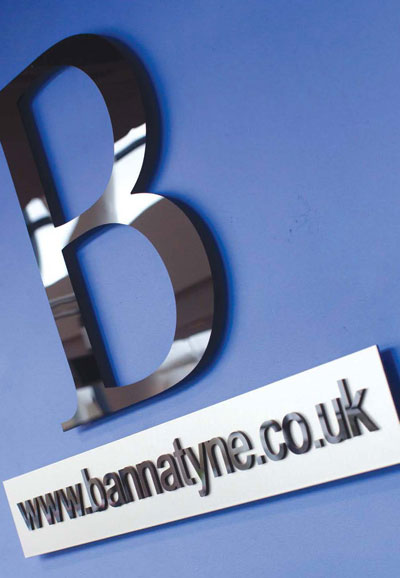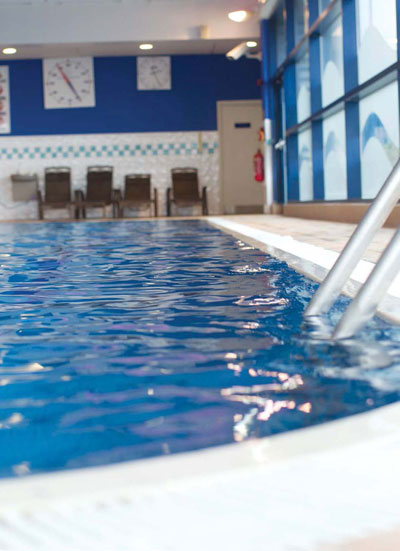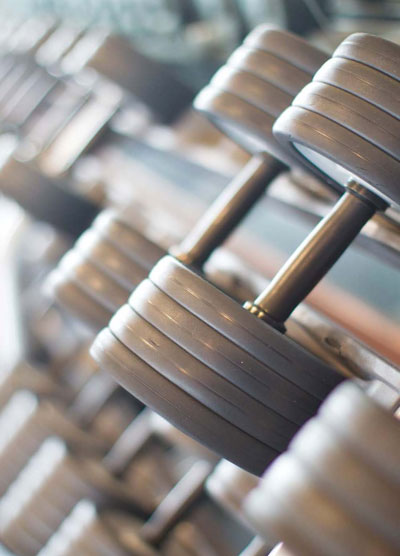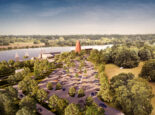Bannatyne’s Health Club

Bannatyne’s Health Club claims to be “more than just a gym”. The fitness chain, founded by business tycoon Duncan Bannatyne, firmly believes that relaxation, healthy eating and socialising are just as important to a healthy lifestyle as exercise. Now that sounds more like it! We spoke to Carl Paper, General Manager of the Peterborough branch to find out more...
 In 1992, Scottish entrepreneur Duncan Bannatyne nearly lost his leg in a nasty skiing accident. The Dragon’s Den star tore the ligaments in his right knee and required emergency surgery to save the leg from amputation, followed by months of exercise to fully recover. But it takes more than a dodgy knee to stop a Dragon… In fact, during the recovery process Bannatyne’s business instincts were on full alert. While jogging on a treadmill, he was also running figures through his head and shrewdly recognised an opportunity to branch into the fitness industry. The first Bannatyne’s Health Club was launched in 1997 and has since expanded to over 60 clubs throughout the UK with more than 180,000 members, making it the largest independent operator in the country.
In 1992, Scottish entrepreneur Duncan Bannatyne nearly lost his leg in a nasty skiing accident. The Dragon’s Den star tore the ligaments in his right knee and required emergency surgery to save the leg from amputation, followed by months of exercise to fully recover. But it takes more than a dodgy knee to stop a Dragon… In fact, during the recovery process Bannatyne’s business instincts were on full alert. While jogging on a treadmill, he was also running figures through his head and shrewdly recognised an opportunity to branch into the fitness industry. The first Bannatyne’s Health Club was launched in 1997 and has since expanded to over 60 clubs throughout the UK with more than 180,000 members, making it the largest independent operator in the country.
One of the distinguishing factors about the fitness chain is its holistic approach to well- being. In addition to gyms with state-of-the-art equipment and studios offering over 80 classes a week, many of the clubs provide facilities such as spas, hair salons, restaurants and even social events. In other words, it’s “the whole package” as Carl Paper, the General Manager of Peterborough Bannatyne’s, puts it.
According to Carl, this all-encompassing approach has allowed the business to appeal to a much larger market.
Our members join for different reasons. Some do just want to come in, have a hard workout and then leave. But others join for social reasons – maybe their friends and family train here and they’ll come in just to use the pool and the spa. Some members will stay for a couple of hours – they’ll have a workout and then maybe meet friends to have tea or coffee. So the social aspect of the club is really important as well
Interestingly, when the recession first began, gym membership was often used as an example of one of the “luxuries” people would have to give up as everyone tightened their belts. But these claims, at least for Bannatyne’s, have proved unfounded. As Carl says:
Our membership rates have actually been fairly sustained during the recession period. And I believe it’s because a lot of people out there have realised they need that relaxation time, that sort of time to themselves, and they seem to be joining, which is great
 Financially, the company has also fared better than expected. In 2008, during the first wave of the recession, the company boasted pre-tax profits of £8.2 million (up from £2.7m in 2007), while the latest figures reveal another increase of £8.7m pre-tax profits in 2012. That’s not to say the company has been entirely immune to the financial crisis; in 2011 Duncan Bannatyne reported the company was feeling the effects, most notably with the rising costs incurred due to increased VAT and national insurance contributions. But by and large, the company has ridden the recession remarkably unscathed and certainly better than some of its competitors.
Financially, the company has also fared better than expected. In 2008, during the first wave of the recession, the company boasted pre-tax profits of £8.2 million (up from £2.7m in 2007), while the latest figures reveal another increase of £8.7m pre-tax profits in 2012. That’s not to say the company has been entirely immune to the financial crisis; in 2011 Duncan Bannatyne reported the company was feeling the effects, most notably with the rising costs incurred due to increased VAT and national insurance contributions. But by and large, the company has ridden the recession remarkably unscathed and certainly better than some of its competitors.
Perhaps one of the reasons Bannatyne’s faired so well during the recession is that there is a strong focus on member retention. While the company has recently revised its contract policy to allow for easier cancellation due to things like illness, following an investigation by the Office of Fair Trading, Carl reveals the company work hard to make sure members stay motivated and want to keep coming back.
We have some good strategies in place to ensure our members stay interested. When members join, they receive a lifestyle evaluation assessment so that one of our fitness advisors can construct a programme to meet their goals. Of course, from time to time it might become a bit stale, and that’s where you tend to dip off on your membership. So we keep it interesting by doing regular programme reviews of our members every 4-6 weeks. We also keep up to date with the latest trends in terms of
our equipment and we bring in new things. For example we’ve just introduced functional fitness areas at the Peterborough site, which steers away from using the gym machines and focuses on how members physically move in a normal business day and that’s certainly keeping our members interested. We also do fast classes, so 15-20 minute blast sessions on the gym floor which definitely helps us interact with more members all the time
Speaking to Carl, it’s pretty obvious that he is a bit of a fitness fanatic. Not only has he dedicated his professional life to the health and fitness industry, but it’s also a very important part of his personal life.
Coming from South Africa it’s obviously a warmer climate and very much about outdoor activities, so it’s always been a big part of my lifestyle. Believe it or not, I first got into the health and fitness industry by doing a bit of bodybuilding in my last few years of high school
he laughs.
Nowadays Carl enjoys working out at least 3-4 times a week with his wife, Shalmieno, who Carl proudly reveals is actually ranked 5th in the world for the Fitness and Figure Competition, a class of physique-exhibition for women. When the pair aren’t training together, they are kept busy looking after their one and a half year old son, which Carl admits takes up most of their time.
After becoming a Fitness Manager aged 20, and then Operations Manager at a health club in South Africa, Carl decided to seek out new opportunities and moved to the UK in 2001.
The health and fitness industry is a lot more competitive in the UK and there’s certainly a lot more chains over here. In South Africa, all the clubs are predominantly owned by one operator now and that’s Virgin – they took over Leisurenet when the business went bankrupt. They’ve done a really good job there, but I wanted to explore the UK and further my skills
In the past 12-13 years that Carl has been in the UK, he has worked as a General Manager at
both LA Fitness and Esporta, before moving to Bannatyne’s Health Club, which attracted Carl due to its wide offering of activities and “fantastic career progression”. Ultimately, Carl is hoping to become a fully fledged Regional Manager in the next few years. In fact he recently enjoyed a promotion to cluster-manager of the Norwich and Lowestoft club as well, as his home club Peterborough where he has spent the past four years.
As General Manager Carl is able to put his personal stamp on the club, with one example being the fact that Peterborough was also one of the first Bannatyne Health Clubs to introduce “Bokwa” to its class timetable (an intense cardio- vascular dance-based work out, combining elements of Kickboxing, Brazilian martial arts Capoieora, and South African war dance.)
It’s pretty much left up to the General Manager at each site to decide what they feel is appropriate for their club. We introduced Bokwa very quickly. We have a very good local instructor, Neil Couperthwaite, who’s quite well known in the Peterborough area and who does our Zumba classes. When I found out he was also a trained Bokwa instructor I was keen to get those classes on the timetable as soon as I could. He now does Bokwa for us 3-4 times a week
 The club also recently hosted a four-hour charity Zumbathon (which, in case you’ve never Zumba-d, is a long time!) This particular event had a personal connection to the club, as Zumba instructor Neil’s father sadly passed away from cancer, which the event was in aid of. But actually, charity events are a recurring theme at Bannatyne’s Health Club. This isn’t particularly surprising given that Duncan Bannatyne himself has a reputation for philanthropy; to date the Bannatyne Trust has donated £2,105,692.94 to over 50 causes. But as Carl points out, it also allows the clubs to offer something different for their members.
The club also recently hosted a four-hour charity Zumbathon (which, in case you’ve never Zumba-d, is a long time!) This particular event had a personal connection to the club, as Zumba instructor Neil’s father sadly passed away from cancer, which the event was in aid of. But actually, charity events are a recurring theme at Bannatyne’s Health Club. This isn’t particularly surprising given that Duncan Bannatyne himself has a reputation for philanthropy; to date the Bannatyne Trust has donated £2,105,692.94 to over 50 causes. But as Carl points out, it also allows the clubs to offer something different for their members.
Another key aspect of the fitness empire, according to Carl, is to offer good value for money. There are a range of memberships, including Executive, Gold, Platinum, and (with a patriotic nod to its founder, no doubt) Scottish Platinum! According to Carl, a typical membership is around £40-£60 a month and that encompasses everything – over 80 classes a week and access to all the facilities. “So if you’re using the Health Club 3-4 times a week, you’re looking at £2.50 for a workout,” Carl points out, “which is cheaper than your local leisure centre.”
To find out more about Bannatyne’s Health Club Peterborough visit:
https://www. bannatyne.co.uk/healthandfitness/peterborough/
Bannatyne’s Health Club
Papryus Road
Werrington
Peterborough
PE4 5HW















